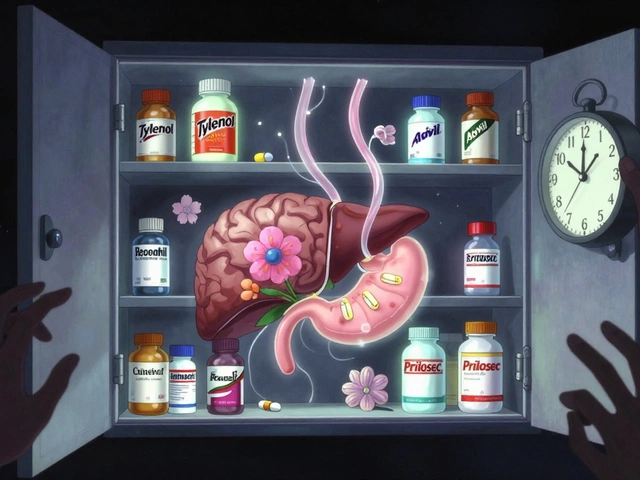Drug Substitutes: Quick Tips for Safe Swaps
Ever wondered if there’s a better option when your doctor prescribes a medication you can’t take or afford? You’re not alone. Plenty of people look for drug substitutes that work just as well, cost less, or have fewer side effects. This guide breaks down what to watch for, how to compare options, and where to find reliable information.
Why Look for a Substitute?
Sometimes a drug isn’t covered by insurance, or it triggers an allergy. Other times you hear about a newer pill that promises fewer headaches. Switching can save money, reduce side‑effects, or make a treatment easier to stick with. The key is to find a substitute that matches the original’s purpose without compromising safety.
How to Choose the Right Alternative
Start by checking the drug’s class. Medications in the same class usually act on the same pathways, so they often share effectiveness. For example, if you can’t take Effexor (venlafaxine), another serotonin‑norepinephrine reuptake inhibitor (SNRI) like Pristiq might do the trick.
Next, compare dosage and half‑life. A lower dose might mean fewer side effects, but you need to keep the therapeutic window in mind. Look up the substitution’s price, too—some generics cost a fraction of the brand name.
Don’t skip the side‑effect profile. A drug might treat your condition well but cause drowsiness, weight gain, or interact with other meds you’re already on. A quick read of the side‑effect list can save you a lot of trouble later.
Finally, talk to a pharmacist or your prescriber. They can confirm if the alternative is appropriate for your health history. A short conversation often uncovers hidden risks, like kidney issues or heart conditions, that aren’t obvious from a quick Google search.
Here’s a quick cheat‑sheet for common drug categories:
- Antidepressants: If a SSRI feels too sedating, try an SNRI or a bupropion‑based option.
- Blood pressure meds: Switch from a brand beta‑blocker to a generic version or a related calcium‑channel blocker if you experience fatigue.
- Allergy relief: When hydroxyzine is scarce, diphenhydramine or cetirizine can fill the gap, but check dosing differences.
- Asthma inhalers: If albuterol isn’t enough, a combo inhaler with a steroid may reduce flare‑ups.
- Pain relievers: Replace a strong opioid with a non‑opioid NSAID or a low‑dose tramadol under doctor guidance.
When you find a promising substitute, write down the name, dosage, and any instructions you receive. Keep this note handy for future appointments.
Remember, not every drug has a perfect match. In some cases, lifestyle changes—like diet tweaks for cholesterol—can reduce or eliminate the need for medication altogether. Pairing a substitute with healthy habits often gives the best results.
Bottom line: look at drug class, dosage, side effects, cost, and professional advice before making a switch. With a little research, you can find a substitute that keeps you feeling good without breaking the bank.
10 Alternatives to Hydroxychloroquine in 2025
As we move further into 2025, the demand for alternatives to hydroxychloroquine has become pressing. This article highlights ten promising substitutes, detailing their advantages and drawbacks. By considering various options such as Ivermectin, Doxycycline, and Quercetin, readers can make informed decisions about their health needs. We further discuss the practical implications of these medications in modern treatments. Discover the pros and cons of each alternative to better navigate today's medical landscape.





